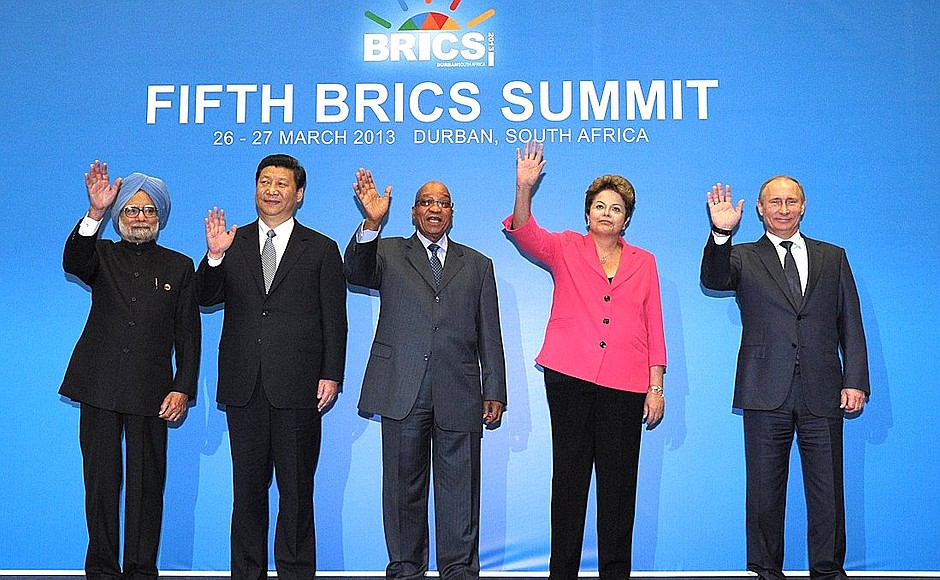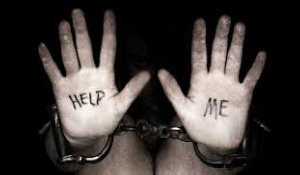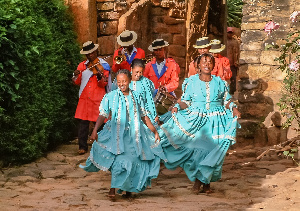News AfricaSouth Africa News
Global South and Africa Hope for Strengthening Multipolar World at BRICS Summit

South Africa is hosting the 15th BRICS (Brazil, Russia, India, China and South Africa) summit August 22 to 24, but in fact, not all the current five leaders will attend. Russian President Vladimir Putin will only participate virtually as the International Criminal Court (ICC) has issued an arrest warrant for him. This has created grounds for several arguments and multiple interpretations of the foreign policy for South Africa.
South Africa will host the summit for the third time this August 2023. It held the first late March 2013. At that BRICS summit that was one decade ago, the participants included Prime Minister of India Manmohan Singh, President of China Xi Jinping, President of South Africa Jacob Zuma, President of Brazil Dilma Rousseff, and Vladimir Putin.
On 27 July 2018, Vladimir Putin attended a meeting of BRICS leaders with delegation heads from invited African States and Chairs of international associations, held in Johannesburg. Putin noted that Africa is one of the world’s most rapidly developing regions. He went further to list various sectors where Russia has engaged with Africa, made reference to the previous BRICS summit in Russia in 2015 where members had adopted the large-scale BRICS Strategy for Economic Partnership.
One significant and useful feature is that BRICS has developed a useful tradition started by South Africa. The primary aim is to strengthen ties with geographically and geopolitically close African nations. Putin performed prominently during that BRICS summit in 2018. He addressed specially-invited African leaders, as part of the ‘BRICS OutReach’ group to the South Africa.
Interacting with heads of African leaders, Putin stressed that the BRICS group’s companies have been working actively in the African market; there was a significant growing influx of investments into various sectors in Africa’s economies, from traditional mineral extraction and farming to high technologies and banking. Together, BRICS members consistently championing the rights and interests of Africa and with other emerging economies, speaking out in favour of increasing their role and influence in the global governance system, particularly international financial and economic organizations.
“Over the course of many decades, Russia has provided direct assistance to the African continent. We have written off over 20 billion dollars in debt; we have written off far more than any other G8 nation. We plan to take additional measures to ease the debt burden, through intergovernmental agreements on debt-for-development plans for Tanzania, Zambia and Mozambique for a total of 263.3 million dollars,” he stressed there at the meeting.
Putin has the passion for erasing Africa’s debts. It is the Kremlin chorus down the years after Soviet collapse to sing the “debt chorus” during high-level meetings with African leaders. Putin cancelled Africa’s US$20 billion debts during the first Russia-Africa summit, and then last July 2023 summit. Putin said in July US$23 billion debts. The 2018 Johannesburg summit gave birth to the idea of holding a Russia-Africa summit with the participation of heads of African States.
In addition, BRICS leaders witnessed the signing of cooperation agreements on green economy, co-financing infrastructure projects in Africa, and a declaration on establishing the BRICS Business Council. Also signed was a declaration on establishing a consortium of BRICS expert centres and the issue of joint statistics publications from the BRICS members.
That summit concluded with the declaration which assesses the global political and economic situation, and reflects the BRICS countries’ common positions on current multilateral cooperation issues. The action plan outlined the BRICS countries’ work for the subsequent years and also includes some promising new areas of cooperation. It particularly pledged to support Africa using South Africa as the strategic gateway into the continent.
Analyzing BRICS development further we can say that, like each of the participating nations to have common interest in developing optimal ways for sustainable development, and an aspiration to ensure the well-being and prosperity of their peoples under guaranteed peace and security. It is also to build a fair and comprehensive partnership model that is capable of ensuring sustainable global governance in the 21st century.
Over the past one decade-and-half since its creation, BRICS has endeavored to deepen contacts beyond geopolitical and economic dimensions, and that include serious work in culture, science, education, tourism with its partners such as the African Union (AU), the Shanghai Cooperation Organisation (SCO) and the Eurasian Union (EU). It has further established such divisions as BRICS Business Council, BRICS Women Group, BRICS Youth and BRICS Network Universities et cetera.
South Africa prepares to host BRICS for the third time August 22 to 24, President of China Xi Jinping becomes the BRICS leaders prize winner in Johannesburg. Xi Jinping attended in March 2013 and July 2018, and now in August 2023. While there are high expectations and there are also three strategic questions. From historical perspectives, South Africa and Russia have close relationships from the time of the former’s political and liberation struggle, and with later developments until it joined BRICS in 2010.
On the unofficial levels, Putin has worked out friendship with both former President Jacob Zuma and the current South African Cyril Ramaphosa. We know very well that this strategic relationship is (un)doubtlessly influencing politics between the two countries and of course, the two plus China in BRICS. Beijing sees in the BRICS expansion good opportunities to put into practice its megaproject ‘One Belt One Road’ while Russia appears remarkably different and has hyperbolic multipolar anti-Western rhetoric. Brazil is investing, South Africa has close to nothing or better still extremely little with economic development among BRICS.
Putin finally backed down travelling to South Africa, as widely reported by both local and foreign media, including Al-Jazeera, Reuters, Associated Press, Agence France Press and Bloomberg. The South African government previously drew international criticism in 2015, when it refused to execute an ICC arrest warrant for then-Sudanese President Omar al-Bashir, who had been indicted for war crimes and genocide, while he was attending a meeting of African leaders in Johannesburg. South Africa’s Supreme Court of Appeals ruled that the government had acted unlawfully and the ICC found that it had failed to comply with its international obligations.
Secondly, the BRICS leaders together with the BRICS National Development Bank will work on how a potential new common currency might work, including how it could shield members from the impact of sanctions. This further relates to how the bloc can win greater influence and to challenge the globally-recognized currency of the United States.
The BRICS are looking to “ensure that we do not become victims to sanctions that have secondary effects on countries that have no involvement in issues that have led to those unilateral sanctions,” Naledi Pandor, South Africa’s minister of international relations, emphasized. Proposals are being considered by officials at the New Development Bank, the Shanghai-based lender created by BRICS nations, and the bloc “will be guided to them as to what the future models might be,” Pandor said, without providing further details.
Thirdly, plans for expansion has dominated nearly all media reports. BRICS activities have expanded during the past few years, including attracting many other from Asia, Africa and Latin America to participate in the Outreach and BRICS+ segments of the organization. The prospect of adding more members was first raised at summit in China and a number of nations have formally asked to join, with at least seven others expressing interest. Now there is long list compiled for the summit, amid broader talks that have gained momentum about how the bloc should expand its membership.
More than 70 States will participate, about 15 officially submitted requests to join and that will contribute to the changing processes and further give the potential force for substantial geopolitical shifts. South Africa believes that the bloc could be “transformative” representing those nations including from Africa that wish to play a role in world affairs, ensuring benefit to the Global South. “BRICS has acquired a very important stature in the world, with many across various continents of our world seeking to be part of it,” South African President Cyril Ramaphosa said in Cape Town.
The geopolitical tensions have added to worries about the impact on South Africa’s economic outlook. South Africa has its own internal problems deepening each passing day. The ANC is playing hard on its foreign relations with external players especially with Russia Europe and the United States. South Africa, as per stipulated guidelines and rules, holds the rotating presidency of BRICS, the organization of five made up of Brazil, Russia, India, China and South Africa. The BRICS is a model organization of genuine multilateral diplomacy. Its structure is formed in compliance with the 21st century realities.
From all indications BRICS is steadily developing its muscles since the first meeting in St Petersburg in 2005. It was called RIC, which stood for Russia, India and China. Then later, Brazil joined and finally South Africa in February 2011, which is why now it is referred to as BRICS. The acronym BRICS is derived from the members first letter in English. The BRICS (Brazil, Russia, India, China and South Africa) collectively represent about 26% of the world’s geographical area and about 42% of the world’s population.
Source: Thepressradio.com| Kestèr Kenn Klomegâh
Tags
BRICS



